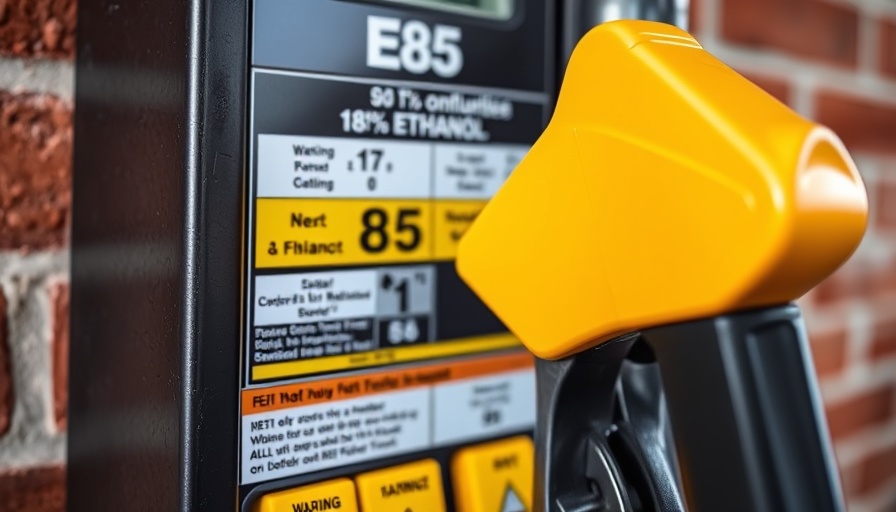
Understanding the New Higher-Ethanol Fuel Rules in Indiana
Recently, the U.S. government made a significant change, allowing the temporary sale of higher-ethanol fuels during the summer months. This initiative might seem like just another regulation, but it has important implications for both the environment and local consumers in Northwestern Indiana.
Why Higher-Ethanol Fuels Matter
Higher-ethanol fuels, like E15 (which contains 15% ethanol), are designed to reduce emissions and reliance on fossil fuels. For many, this shift represents a step toward a more sustainable and eco-friendly energy source. In car-loving Indiana, where gas prices can quickly add stress to household budgets, this might offer a bit of relief as E15 often costs less than traditional gasoline.
Impact on Local Economies and Environment
For residents in Northwestern Indiana, this decision isn't just about fuel. It touches aspects of local farming, as ethanol is derived from corn. By increasing the market for higher-ethanol fuel, local corn farmers might see a boost in demand, supporting agricultural jobs and local economies. Additionally, the environmental benefits could lead to cleaner air in our communities, making it a win-win for both the economy and the planet.
Concerns Raised by Consumers
While many welcome this change, it's essential to address concerns from consumers. There is uncertainty about how higher ethanol content affects vehicle performance and maintenance. Car engines vary, and some vehicles may not be optimized for higher-ethanol blends. This fear of potential damage to vehicles is one reason why some residents may hesitate to embrace this new fuel option fully. Educating the community about the benefits, compatibility, and maintenance will be crucial as this transition unfolds.
To Embrace or Not: The Future of Fuel in Indiana
This temporary allowance for summertime higher-ethanol fuel signals a shift in fuel choices for Hoosiers. As enabling legislation rolls out, community discussions will likely be key in determining how well this initiative is received. Those living in Northwestern Indiana should stay informed about how this fuel type affects their wallets and their vehicles so they can make the best decision for their circumstances.
Stay engaged with local discussions on this issue and consider how these changes might affect your choices at the pump. The dialogue about energy alternatives is ongoing, and your voice matters in shaping Indiana's fuel future.
 Add Row
Add Row  Add
Add 




Write A Comment